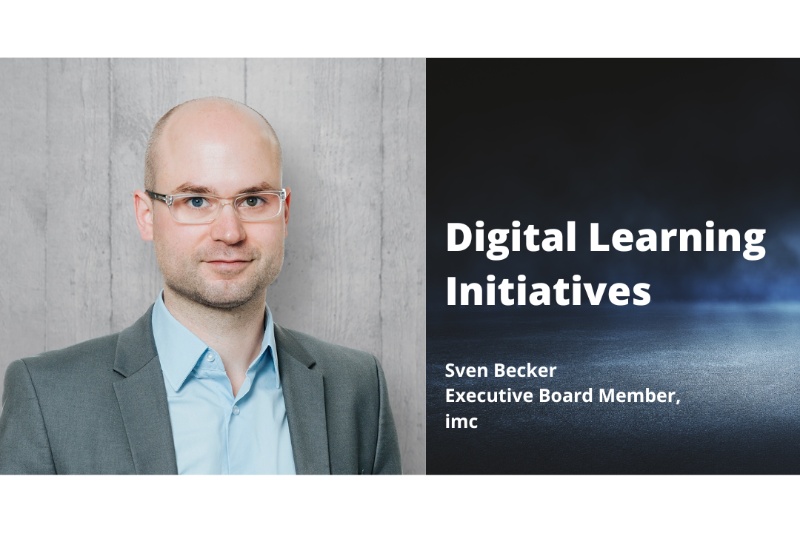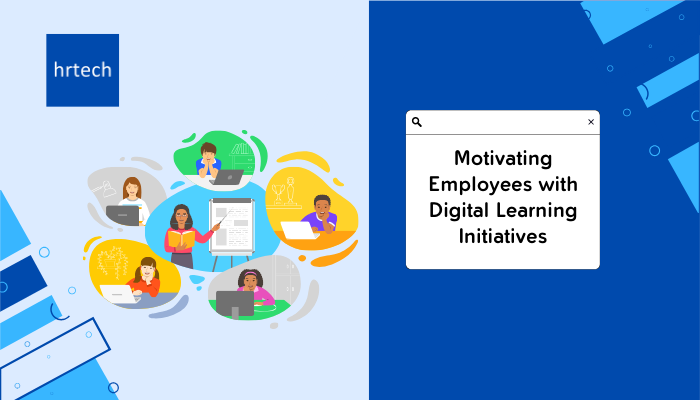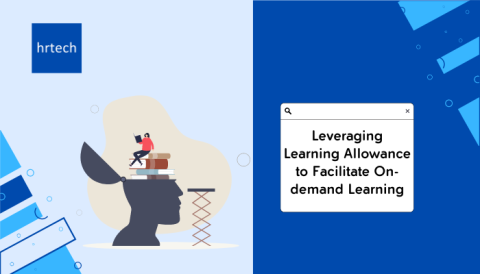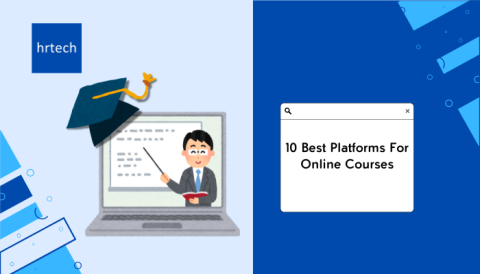It’s essential that we shift from expensive external training programs to make room for learning. Professional development should not be a rigid structure, but it should cultivate a learning culture instead.

The development and implementation of digital learning programs typically require an upfront investment which might become an obstacle for organisations that need to streamline their expenses. However, digital learning provides substantial cost benefits when appropriately applied, including less time spent on training and scalability.
In my discussion with Sven Becker, Executive Board Member (imc), he shared his insights on the various learning initiatives to motivate employees in their learning journey.
Here are the excerpts from the Q&A session that I had with Sven recently.
A recent study revealed that some enterprises significantly reduced or discontinued professional development initiatives during the pandemic, even though they had limited digital competencies before the pandemic. What is your advice to these companies to prevent them from falling behind even further?
Sven: It’s essential that we shift from expensive external training programs to make room for learning. Professional development should not be a rigid structure, but it should cultivate a learning culture instead. Various internal initiatives such as job shadowing or a BarCamp are excellent learning format examples in the development processes. Job shadowing is a perfect learning format in career and leadership development, and a BarCamp is an ideal format for learning, networking and teambuilding. These are cost-saving initiatives that generate impacts due to their practicality.
How can an organisation establish a lasting learning culture, and how does imc support its client on this journey?
Sven: Establishing a permanent learning culture needs frequent new motivations. In many companies, these are triggered by some grassroots movement. In my experience, it can appear too artificial if we are using a top-down approach. While the top management should set an example, the learning culture is only cultivated with decentralisation. A learning culture must be regarded as an open ecosystem that facilitates learning. This is a crucial aspect of our client projects. While the technology component is important, a digital learning format needs to be customised according to the corporate culture and values. It also helps to use employees as role models. When the team members witness successful learning and development, the potential multiplicator effect is enormous.
What are the popular learning and development topics in the current situations?
Sven: Training courses on regulatory issues, such as IT security, are the standard digital training courses. However, the professional development and extension and refocus of employees’ skill profiles or reskilling are very popular after the pandemic. Employees need to build their skills for the new job profiles due to radical changes in the market. In general, learning and development become more central: Employees play a key role in a company’s going concern.
Encouraging employees to participate in e-learning could be a challenge in the organisation. How can organisations motivate their employees to learn? In your experience, which learning formats do learners enjoy the most?
Sven: Great question. Digital learning is largely fuelled by motivation. Customised learning formats tailored to the learner will deliver greater benefits to the employees and the organisation. However, learning should not be seen as an end in itself. It needs to match the organisation’s needs. Many companies use target/performance models. At imc, we work with the goal-setting framework “objectives and key results” (OKR). It’s important to discuss training and professional development in the OKR meeting as the feedback’s part.
In particular, we organise town hall meetings to communicate our corporate vision; hence, we can implement it through our daily actions. In addition, we regularly involve our team members in our corporate mission and objectives and link these with our routine behaviours at work. If employees discover the meaning of their work and know how they can achieve their goals, they already gain a solid incentive to learn, develop and advance.
Immersive content can be leveraged to make learning more fun. Storytelling is an essential tool in this context, as it helps to involve the user in the training course. For example, we developed an after-sales training course for a pricing tool on behalf of a large German automobile manufacturer. It is a game with a “Mission Impossible” theme. The mission is to obtain a “pricing licence.” If the mission is successfully completed, the licence can be exchanged for a code.
Last but not least, let’s hear your corporate learning strategy tips! What is the ideal starting point for a company?
Sven: Successful strategy implementation relies on careful examination of the organisation’s tools, systems, contents – and human resources. As with any strategy, it is important to analyse and formulate project objectives. Developing a roadmap with a timeline and very specific recommended actions are the best way to ensure achievements.
It’s comprehensive planning, especially in large global projects. However, every organisation can have successful learning and development programmes with detailed process guidelines by rethinking processes and testing new formats besides creating momentum and motivating management, employees and project leaders.
We could support your digital learning initiatives through our technology solution that improve the learners’ experience and increase the organisation’s growth. Our learning management system, imc Learning Suite, can be perfectly adapted to any learning scenario and smoothly integrated into any ecosystem. We are a Gold Award recipient of the best HR Tech Learning Management System in HRM Asia Readership Awards 2020 & 2021.
For additional information about imc, click here.
About the author :

Sriram Iyer is a Human Resources practitioner with around two decades of experience in the areas of HR Technology, Workforce Planning & Strategy, Talent Supply Chain, Employee Engagement, Talent Branding and Acquisition & Client Management. Based in Singapore since Jan 2012, he has strong exposure to the JAPAC region and has a knowledge of the cultural nuances of the region. Prior to becoming an entrepreneur, he has also played leadership roles with NCS (Singtel Group Enterprise) and Nasdaq-listed Cognizant Technology Solutions in Singapore, running large scale talent initiatives across regions. He is a proud alumnus of National University of Singapore (Singapore) and Symbiosis Institute of International Business (India).





